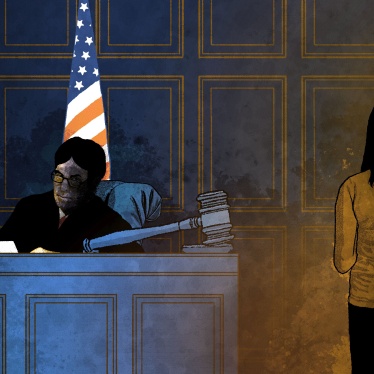A courageous film may spark a much-needed national dialogue about how to respond to every parent's worst nightmare—child sexual abuse.
In "The Woodsman," Kevin Bacon plays Walter, the film's protagonist and a child molester.
In "The Woodsman," Kevin Bacon plays Walter, the film's protagonist and a child molester.
"The Woodsman" neither romanticizes Walter nor downplays the pain experienced by victims of sexual assault. Instead, it forces us to confront a reality few of us are comfortable with: The men and women who commit child sexual abuse are human beings. "I am not a monster," Walter says, trying to convince himself as much as others.
The film opens with Walter registering as a sex offender in Pennsylvania after he has finished serving 12 years in prison. Easily accessible on the Internet, state sex offender registries typically publish offenders' names, photos, addresses and the nature of their crime. But all too often, the registries become vehicles for the vicious ostracism and pointless torment of the men and women identified on them.
Branded with the label "sex offender," a released offender finds it difficult, if not impossible, to rebuild a life.
Treated as pariahs, registered sex offenders, even those who committed offenses long ago, cannot find employment or housing. They are banished from community to community, forced to live in tents in prison parking lots, and even reimprisoned simply because they cannot find anyone willing to rent housing to them.
As nursing homes begin to screen for sex offenders, it is even increasingly difficult for them to find a place to grow old and die.
Walter is lucky. He not only finds a landlord willing to rent to him, he has an employer willing to defy the outrage of other employees when a nosy receptionist locates him on the sex offender registry.
Walter is even able to build a relationship with a woman that continues even after he confesses his crime to her. Played by Bacon's real-life wife, Kyra Sedgwick, Vicki recognizes Walter as a profoundly flawed person but one nonetheless whom she can love.
Perhaps Vicki can see past Walter's child molesting because she is a victim of incest, sexually abused as a young girl by her brothers.
Indeed, "The Woodsman" presents a remarkable compendium of offenders and survivors: Nearly everyone in the movie has been touched in some way by child sexual assault.
The plethora of abuse is not mere cinematic exaggeration: Experts estimate that more than 300,000 children are sexually abused in the United States each year, and at least 25 percent of women and 10 percent of men experienced some form of sexual abuse during childhood.
Some statistics say that one in three children will be victims of a sexual predator.
At best, sex offender registries offer a poor defense against child sexual abuse. Their limitations are underscored by the fact that more than 90 percent of sexual offenses are perpetrated against children by family members or acquaintances, not strangers with prior records lurking around a schoolyard.
Those strangers do exist, however. "The Woodsman" asks what is to become of them; it also asks us to consider what our answers say about us.
Its clear-eyed, mature and candid portrayal of a child molester offers a starting point for addressing the very questions it raises.
Banishment is not the answer. All but the most dangerous serial offenders will eventually be released from prison, and they have to live somewhere. How and where they live will affect the likelihood of recidivism.
Communities will be safer if sex offenders are able to reintegrate, receive support for behavior change, establish new adult relationships and face effective mechanisms for monitoring and accountability.
In fact, isolation can be a trigger for re-offense.
In the film, Walter is able to struggle with and resist the compulsion to offend again in large part because of the support of his lover, employer, therapist and brother-in-law. But offenders who are excluded from jobs, housing and the community in general have little left to lose if they commit another offense.
Walter does not ask for sympathy. But his very existence leaves us no choice but to find sensible ways of dealing with child sexual assault.
It may be that the most effective way to deal with the problem is grounded in compassion and an acknowledgment of the humanity of even the most egregious offenders.
Carey is a researcher with the U.S. Program of Human Rights Watch.







